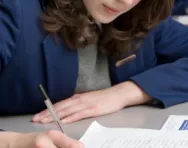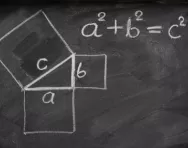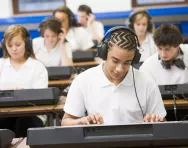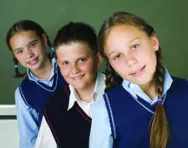Important update from TheSchoolRun
For the past 13 years, TheSchoolRun has been run by a small team of mums working from home, dedicated to providing quality educational resources to primary school parents. Unfortunately, rising supplier costs and falling revenue have made it impossible for us to continue operating, and we’ve had to make the difficult decision to close. The good news: We’ve arranged for another educational provider to take over many of our resources. These will be hosted on a new portal, where the content will be updated and expanded to support your child’s learning.
What this means for subscribers:
- Your subscription is still active, and for now, you can keep using the website as normal — just log in with your usual details to access all our articles and resources*.
- In a few months, all resources will move to the new portal. You’ll continue to have access there until your subscription ends. We’ll send you full details nearer the time.
- As a thank you for your support, we’ll also be sending you 16 primary school eBooks (worth £108.84) to download and keep.
A few changes to be aware of:
- The Learning Journey weekly email has ended, but your child’s plan will still be updated on your dashboard each Monday. Just log in to see the recommended worksheets.
- The 11+ weekly emails have now ended. We sent you all the remaining emails in the series at the end of March — please check your inbox (and spam folder) if you haven’t seen them. You can also follow the full programme here: 11+ Learning Journey.
If you have any questions, please contact us at [email protected]. Thank you for being part of our journey it’s been a privilege to support your family’s learning.
*If you need to reset your password, it will still work as usual. Please check your spam folder if the reset email doesn’t appear in your inbox.
What your child learns in Key Stage 3 English

English is usually taught in ability sets in KS3 (Years 7, 8 and 9). The curriculum will be the same, but higher sets will be working at a higher level, while lower sets will be given more support.
The main aim of the English curriculum is to promote high standards of language and literacy by equipping pupils with a strong command of the spoken and written word, and to develop their love of literature through reading for enjoyment across a wide range of styles and genres.
There are four separate curriculum areas in English:
- reading
- writing
- grammar and vocabulary
- spoken English
KS3 reading
In KS3, children are expected to develop an appreciation and love of reading, and read increasingly challenging material independently. This includes reading a wide range of fiction and non-fiction, including in particular whole books, short stories, poems and plays from a variety of genres, historical periods, forms and authors.
They will study:
- English literature, pre-1914 and contemporary, including prose, poetry and drama
- Shakespeare (two plays)
- Seminal world literature
Students are expected to choose and read books independently, and to re-read books they've already covered to increase their familiarity with them and provide a basis for making comparisons.
They develop their understanding of increasingly challenging texts through learning new vocabulary, using context and dictionaries, making inferences and referring to evidence in the text, and using their knowledge of purpose, audience and context to help their understanding.
Pupils learn to check their understanding to make sure what they've read makes sense, read critically, recognise a range of poetic and dramatic conventions, study setting, plot and characterisation, and understand how the work of dramatists is communicated through performance. They will study work by a range of authors, including studying at least two authors in depth each year.
KS3 writing
In their written work, students are taught to write accurately, fluently, effectively and at length, for a range of purposes and audiences, including:
- Essays
- Stories, scripts, poetry and other imaginative writing
- Notes and scripts for talks and presentations
- A range of other texts, including arguments, and personal and formal letters.
They learn to summarise and organise their material and apply their growing knowledge of vocabulary, grammar and text structure to their writing.
They should be taught to plan, draft, edit and proof-read their work, considering how their writing reflects its intended audience and purpose, amending their vocabulary, grammar and structure to improve their writing, and paying attention to accurate spelling and punctuation.
KS3 grammar and vocabulary
In KS3, pupils are expected to consolidate their knowledge of the grammar and vocabulary they learned at primary school. They do this by:
- Analysing more challenging texts
- Studying the effectiveness of the grammatical features of the texts they read
- Picking up new vocabulary and grammatical tools from the books and other texts they read, and using them in their own writing and speech
- Understanding the differences between written and spoken English, including formal and informal registers, and Standard English and other varieties of English
- Using Standard English confidently in their written and spoken work
- Using linguistic and literary terminology to discuss reading, writing and spoken language.
KS3 spoken language
At this stage, students are taught to speak confidently and effectively. They're expected to use Standard English confidently in a range of contexts, including classroom discussions, speeches and presentations. They should be able to express their own ideas and keep to the point. Pupils take part in formal debates and structured discussions. They improvise, rehearse and perform play scripts and poetry, and use role, intonation, tone, volume, mood, silence, stillness and action to add impact.
For more information about the Y7 English curriculum, read our parents' guide to Y7 English.








